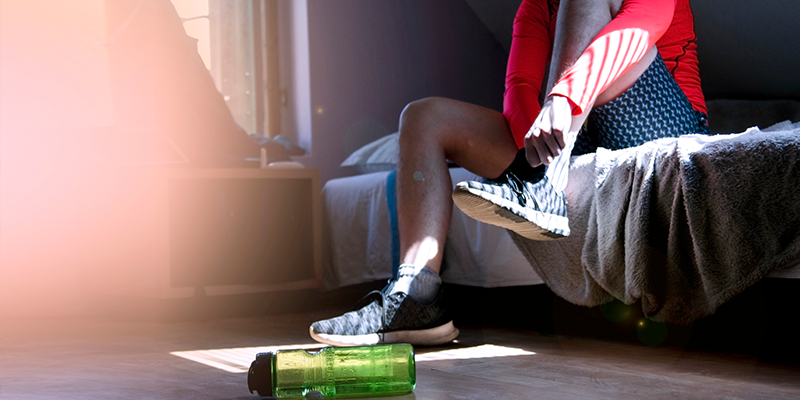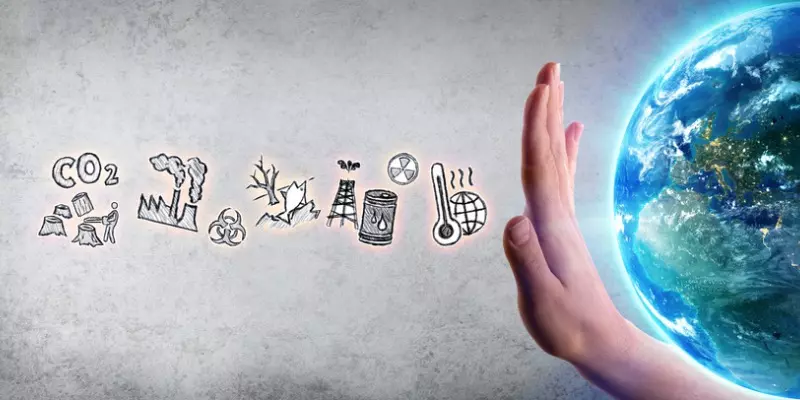
By Shane Creado, MD
The COVID-19 pandemic has ravaged the sports world. Now, professional, collegiate, high school, and recreational teams, as well as individual athletes, need to prepare for twin tsunamis on the horizon: the mental health and insomnia pandemics. Studies estimate the prevalence of sleep disturbances in athletes ranges from 13% to 70%, but these rates could rise sharply as a result of the pandemic. As a sports psychiatrist and sleep medicine doctor who specializes in sleep optimization in elite athletes, I have already begun to witness this first-hand. The hope is that we meet the approaching tsunamis with a game plan, so as to ride out the wave and come out even stronger on the other side.
In this article, I will discuss the links between sleep, mental health, and sports performance and will provide recommendations for sleep optimization.
THE IMPACT OF MENTAL HEALTH PROBLEMS ON SLEEP
Stress and mental health disorders worsen sleep quality and quantity.
- Anxiety: When your brain is in danger mode, or fight or flight mode—such as during a pandemic—it will not ‘fall’ asleep. Insomnia is not the lack of sleep, but instead, excessive wakefulness of the brain. The anxiety we live out while we are awake is the anxiety our brain will experience at night. This helps explain why people are experiencing more intense and scary dreams during the pandemic.
- ADHD (Attention Deficit Hyperactivity Disorder): Distractibility and a racing mind will not let your brain get into the focused state of relaxation that you need, in order to fall asleep.
- Depressive disorders: Sleep difficulties are very common among patients with depression. Individuals with co-occurring depression and insomnia tend to have a more serious disability, greater depression severity, and poorer depression outcomes than those without insomnia.
- PTSD: In people who have been traumatized, we see a much higher frequency of insomnia. This may be attributable to a number of reasons: avoiding sleep, fear of loss of vigilance (sleeping is the most vulnerable thing we do!), or therapies like prolonged exposure therapy that temporarily disrupt sleep.
- Concussions and sleep problems: In a meta-analysis of 1,706 survivors of TBI across 21 studies, the most common sleep disturbances were: insomnia (50%), difficulty maintaining sleep (50%), poor sleep efficiency (49%), early morning awakenings (38%), nightmares (27%), sleep apnea (23% to 36%), restless leg syndrome (13%), excessive daytime sleepiness (hypersomnia or narcolepsy) (50 to 80%), circadian rhythm disturbances (36%), and abnormal behaviors during sleep.
- Substance use: When it comes to licit and illicit substances, we must think about short-term use (the intoxicating and withdrawal symptoms), and also long-term use.
Alcohol: Alcohol may initially help you fall asleep, but it can cause you to wake up in the middle of the night. People with combined insomnia and alcohol dependence seem to have more depression, anxiety, hostility, and problems with concentration than others. In addition, long-term alcohol use increases the risk of sleep apnea and leg movements (when asleep). Medications like valium have similar effects on sleep.
Stimulants can directly affect your ability to fall asleep when you are high, and when you withdraw from a stimulant, the opposite effect is likely.
Marijuana can disrupt sleep rhythms, as it can lower motivation and make you tired and sleepy. This may result in naps during the day, dozing in bed, or using the bed for activities other than sleep, thereby sabotaging your sleep rhythms.
Hallucinogens: Party drugs such as ‘Ecstasy’ or ‘Molly’ (MDMA) can affect your sleep directly (which is because MDMA acts as a combination of stimulants and hallucinogens like mescaline). - Bipolar disorder: Bipolar disorder can disrupt sleep, regardless of your mood state. Hypomanic/manic states result in less sleep, which can perpetuate the mood state. Depressive states can be associated with excessive sleep or staying in bed, which can further disrupt sleep-wake cycles. Even patients in normal (euthymic) mood states report sleep disturbances.
- Psychiatric medications: Several psychotropic medications are known to contribute to sleep disruptions. They can cause or contribute to insomnia, restless leg syndrome (most anti-depressants), sleep apnea (weight gain with certain medications or muscle relaxation with benzodiazepines), dream enactment, and more.
THE IMPACT OF SLEEP PROBLEMS ON MENTAL HEALTH
Poor sleep worsens the severity of mental health disorders and negative mood states.
- Anxiety: Poor sleep adversely affects your frontal lobes (responsible for concentration, executive functioning, rational thoughts) and your temporal lobes (which are important for emotional stability, psychological resilience, memory). Poor sleep also causes you to be more irritable and frustrated (think jet lag).
- ADHD (Attention Deficit Hyperactivity Disorder): Distractibility and a racing mind (issues are seen in the frontal lobes of the brain) could be due to poor sleep.
- Depressive disorders: Researchers have estimated that 90% of patients with depression complain about sleep quality. Poor sleep is also a major risk factor for suicide. Sleep apnea is a major contributor to depression (20% overlap).
- PTSD: In people who have sleep problems like insomnia and sleep apnea, treating these conditions will help the patient heal the areas of the brain needed to engage in therapies to help treat PTSD. If you are sleep deprived, it will be extremely difficult for you to engage in treatments, as well as commit the new things learned to memory.
- Concussions and sleep problems: Sleep deprivation can reduce reaction times and increase the risk of TBI, and it can result in more severe symptoms following a concussion as well as a delayed recovery from the concussion. Thus, adequate sleep is critical, not just to reduce the risk of TBI, but also to help heal the brain after a TBI.
- Substance use: Inadequate sleep can contribute to less willpower, more cravings, and more emotional instability, thereby increasing the risk of licit or illicit substance use. “Uppers” can cause or contribute to insomnia, seizures, and sleep fragmentation. “Downers” like alcohol, opiates, and others can worsen sleep apnea and cause your natural sleep rhythms to be disrupted, perpetuating a sleep problem.
- Bipolar disorder: Sleep loss or sleep deprivation due to any cause (medications, anxiety, pain) can trigger a manic episode or can delay recovery from a mood state.
- Jerusalem Syndrome: This psychotic condition, is thought to be directly attributable to sleep loss.
- Sleep medications: Several sleep medications can worsen or contribute to anxiety, depression, concentration problems, parasomnias (abnormal sleep behaviors), and more.
THE IMPACT OF SLEEP PROBLEMS ON GENERAL HEALTH
Poor sleep is associated with a wide range of physical health issues, including hormonal imbalances (in males, smaller testicles and testosterone levels drop by 10%-15%), increased inflammation, premature aging (shortened telomeres), negative effects on gene activity, and lower immunity. In addition, it increases the risk of cancer, obesity (adults with short sleep duration are 55% more likely to become obese), heart disease (in the spring, when we lose one hour of sleep, we see a subsequent 24% increase in heart attacks the following day), diabetes, and dementia. Ultimately, a lack of quality sleep is linked with shorter life spans.
THE IMPACT OF SLEEP PROBLEMS ON ATHLETIC PERFORMANCE
Independent studies have confirmed that sleep disruptions result in higher perceived training loads, decreased maximal jump performance, increased joint coordination variability, reduced reaction times, increase injury risk, performance variations of up to 26% (depending on time of performance and your biological clock— whether you’re a night owl or a morning bird), slower 40-yard dash times, poor team dynamics (people to react more emotionally to negative stimuli because the amygdala overreacts), worse mental resilience.
THE IMPACT OF SLEEP PROBLEMS ON THE BRAIN AND SPORTS PERFORMANCE
A lack of quality sleep negatively impacts the brain—and subsequently, performance—in the following ways:
- Frontal lobe problems: Poor judgment, impulsivity, poor concentration (which can increase the risk of injury and concussion), poor planning, and reduced performance (the motor control center of your brain is also in the frontal lobes).
- Temporal lobe problems: Difficulty with emotional regulation and mood stability (including psychological resilience). Communication will be impacted, resulting in problems interacting with teammates, coaches, and other support staff. New learning and memory consolidation will be challenging, causing difficulty in learning new plays, techniques, training routines, and more.
- Parietal lobe problems: Difficulty with spatial awareness (critical in all sports), visual processing (such as seeing and tracking objects like a tennis ball or shuttlecock), sense of direction, right and left discrimination, and calculations. Thus, risking poor positioning, poor footwork, and poor form (increased risk of injury and an increased chance of missing the ball or mishitting a shot). For example, sleep deprivation reduces basketball shooting accuracy by more than 9%.
RECOMMENDATIONS FOR BETTER SLEEP, MENTAL HEALTH, AND PERFORMANCE
“If you told an athlete you had a treatment that would reduce the chemicals associated with stress, that would naturally increase human growth hormone, that enhances recovery rate, that improves performance, they would all do it. Sleep does all of those things.” —Casey Smith, Head Athletic Trainer, Dallas Mavericks
For peak performance, athletes with mental health issues (including substance use disorders) and/or sleep problems need specialized treatment. It is now accepted that sleep and mental health disorders need to be treated concurrently, rather than serially. To enhance sleep and performance, follow these recommendations:
- Athletes with sleep problems should be referred for specialized treatment to synchronize their circadian and homeostatic sleep and wake rhythms. Those without reported sleep problems can still benefit from sleep optimization to boost performance, reduce injury risk, reduce inflammation, improve recovery between games, and lengthen their playing career. For example, research shows that with sleep extension, basketball players demonstrate faster timed-sprints, improved shooting accuracy, improved mental wellbeing, increased free throw percentage by 9%, and increased 3-point field goal percentage by 9.2%.
- Ideally, sleep disorders must be approached with a root cause analysis, looking into and treating underlying contributing factors. Teams and athletes need a sleep doctor to look into medications, medical conditions, pain, and other factors that contribute to suboptimal sleep.
- A sleep medicine doctor with training in cognitive behavioral therapy for insomnia, and experience in working with athletes and sports teams, need to be part of the treatment team to develop general sleep protocols, as well as individualized sleep strategies.
- With the help of a sleep medicine specialist, teams and athletes need to adopt specific protocols for the pre-season, off-season, and in-season. And they need to create travel strategies depending on the schedule of play, time zones, type of travel, duration of travel, individual biological rhythms, and more.
Professional and collegiate sports organizations—as well as high school and recreational teams and any individual athlete—would be wise to use these evidence-based concepts to create sport-specific sleep guidelines and to plan playing schedules based on them. This will allow players to have healthier and longer careers, break world records and have them come as close to athletic perfection as possible, enthralling fans and shareholders for years to come.
About the Author: Shane Creado, MD, Amen Clinics Chicago
Dr. Shane Creado is a board-certified sports psychiatrist and sleep specialist at Amen Clinics. He is the author of Peak Sleep Performance: The Cutting-Edge Sleep Science That Will Guarantee A Competitive Advantage. He is an outspoken advocate for mental health and sleep, the creator of a sleep improvement video series called “Overcoming Insomnia” for Amen University, helped design a high-quality sleep supplement for BrainMD, and is based in Chicago, IL.





No Comments »
No comments yet.
RSS feed for comments on this post.
Leave a comment